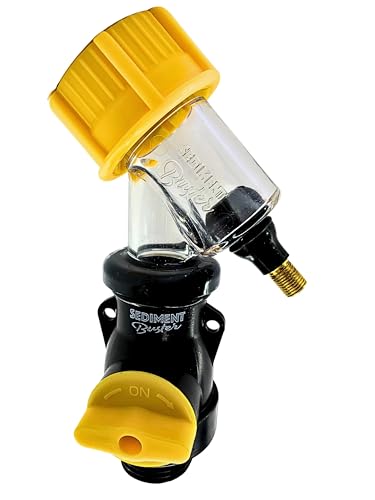Explore the physical appearance, chemical composition, and contamination signs of diesel to understand what diesel looks like and how to spot any issues.
Physical Appearance of Diesel
Diesel fuel is a crucial element in the operation of many vehicles and machinery, and its physical appearance can give important clues about its quality and composition. Let’s delve into the key aspects of the physical appearance of diesel fuel.
Color
The color of diesel fuel can vary depending on its composition and any additives it may contain. Typically, diesel fuel is a shade of pale yellow or light amber. However, variations in color can indicate potential issues with the fuel. For example, a darker color may suggest contamination or the presence of impurities. On the other hand, a clear, bright color can indicate high-quality, clean diesel fuel.
Texture
When it comes to texture, diesel fuel should be smooth and free-flowing. It should not appear thick or sludgy, as this could indicate contamination or degradation of the fuel. A gritty texture or the presence of particles can be a sign of sediment or impurities in the diesel, which can lead to engine problems if not addressed.
Clarity
The clarity of diesel fuel refers to how transparent it is. Ideally, diesel fuel should be clear and free of any cloudiness or haziness. Cloudy diesel fuel may indicate the presence of water or suspended particles, which can cause issues with engine performance. Additionally, clear diesel fuel is a sign of good quality and purity, ensuring optimal combustion and efficiency in the engine.
Chemical Composition of Diesel
Hydrocarbons
Diesel fuel is primarily composed of hydrocarbons, which are organic compounds made up of hydrogen and carbon atoms. These hydrocarbons can vary in size and structure, leading to differences in the properties of diesel fuel. The main types of hydrocarbons found in diesel fuel are paraffins, aromatics, and olefins. Paraffins are straight-chain hydrocarbons that provide diesel fuel with good lubricating properties, while aromatics and olefins contribute to the energy content of the fuel.
Sulfur Content
Sulfur content is a crucial aspect of diesel fuel composition. In the past, diesel fuel had high levels of sulfur, which could lead to harmful emissions when burned. However, modern diesel fuels are required to have low sulfur content to comply with environmental regulations. Ultra-low sulfur diesel (ULSD) has sulfur levels of 15 parts per million (ppm) or lower, reducing harmful emissions and improving air quality.
Additives
Additives are substances added to diesel fuel to improve its performance and characteristics. These additives can enhance fuel efficiency, reduce emissions, prevent corrosion in the engine, and improve lubricity. Common additives include cetane improvers, lubricity agents, anti-oxidants, and anti-foaming agents. By carefully selecting and blending additives, diesel fuel manufacturers can tailor the fuel to meet specific performance requirements for different applications.
Diesel Contamination Signs
Water Presence
Water presence in diesel is a common sign of contamination that can have detrimental effects on your engine. When water enters the fuel system, it can lead to corrosion, reduced lubrication, and decreased fuel efficiency. This can result in costly repairs and decreased performance of your vehicle.
To detect water in diesel, you can perform a simple test using a water finding paste. This paste changes color when it comes into contact with water, indicating the presence of water in the fuel. Additionally, if you notice a cloudy appearance in the diesel or see water droplets forming at the bottom of the fuel tank, it is a clear indication of water contamination.
Dealing with water contamination in diesel is crucial to prevent damage to your engine. Regularly draining the water from the fuel tank and using water-absorbing additives can help mitigate the effects of water contamination and keep your engine running smoothly.
Sediment
Sediment in diesel fuel is another common sign of contamination that can cause issues with your engine’s performance. Sediment can accumulate in the fuel tank over time, clogging fuel filters and injectors, leading to poor fuel flow and reduced engine efficiency.
To check for sediment in diesel, you can visually inspect the fuel for any particles or debris floating in the fuel. Additionally, if you notice a significant decrease in fuel efficiency or engine power, it may be a sign of sediment buildup in the fuel system.
Preventing sediment contamination involves regular maintenance of your fuel system, including changing fuel filters and using fuel additives that help prevent sediment buildup. By keeping your fuel system clean and free of sediment, you can ensure optimal engine performance and prolong the life of your vehicle.
Unusual Odor
An unusual odor coming from your diesel fuel can be a sign of contamination that should not be ignored. Diesel fuel should have a distinct, slightly sweet smell, and any unusual or foul odors can indicate the presence of contaminants in the fuel.
If you notice a strong chemical smell or a rotten egg odor coming from your diesel fuel, it could be a sign of sulfur contamination. Sulfur in diesel fuel can lead to increased emissions, engine deposits, and reduced engine performance.
To address unusual odors in diesel fuel, it is important to identify the source of the contamination and take appropriate measures to remove the contaminants. Regularly monitoring the smell of your diesel fuel and addressing any unusual odors promptly can help prevent damage to your engine and ensure optimal performance.
In conclusion, being aware of the signs of diesel contamination, such as water presence, sediment, and unusual odors, is essential for maintaining the health of your engine. By taking proactive steps to prevent and address contamination, you can ensure that your vehicle runs smoothly and efficiently for years to come.


